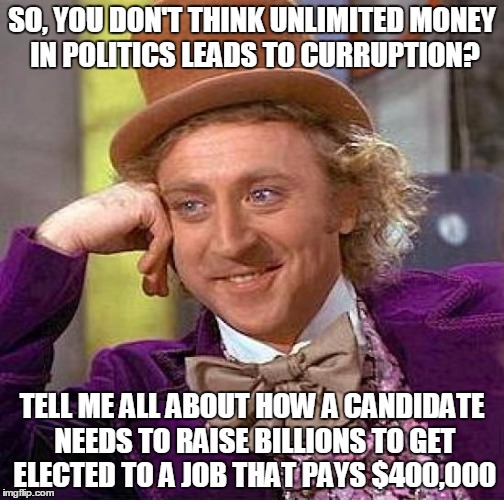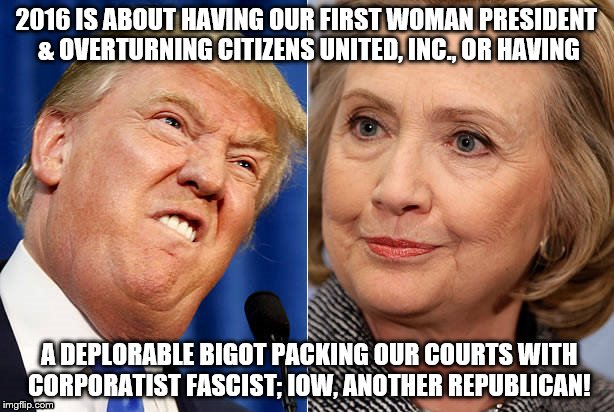
When it comes to campaign finance law, Citizens United vs FCC (2010) said political speech is free speech and protected by the First Amendment.
Here’s the facts of Citizens United v. FCC. In 2008, Citizens United, a non-profit corporation, made a documentary about Senator Hillary Clinton and the producers told people to order it and watch during the primary election. Of course, the documentary titled “Hillary: The Movie” was critical of Hillary Clinton; additionally, it was considered “electioneering communication” which was considered illegal under the BCRA.
That being said, here’s the issue in Citizens United v. FCC. Is section 441b of the Bipartisan Campaign Reform Act unconstitutional? Do advertisements produced by corporations for or against a candidate within 30 days of the primary elections and with 60 days of the general election unconstitutional?

When it came to this case, the Supreme Court laid down this rule: Political speech is free speech, so the speaker’s corporate identity doesn’t matter.
Furthermore, here’s the holding of Citizens United v. FCC. In a reversal, Justice Kennedy said the provisions of the BCRA limiting unions, corporations, and non-profit organizations from independent political spending and stopping broadcasting of political media funded by them within 60 days of a general election and 30 days of a primary election violates the freedom of speech in the First Amendment.
Interestingly, Justice Kennedy made a strong point in his majority opinion. He said, “If the First Amendment has any force, it prohibits Congress from fining or jailing citizens, or associations of citizens, for simply engaging in political speech.” The First Amendment prevents Congress from jailing individuals because of political speech.
Alternatively, Justice Stevens was joined by Justice Ginsburg, Justice Breyer, and Justice Sotomeyer in his dissent. He said about the Court’s ruling: “[It]threatens to undermine the integrity of elected institutions across the Nation. The path it has taken to reach its outcome will, I fear, do damage to this institution.” Furthermore, “A democracy cannot function effectively when its constituent members believe laws are being bought and sold.”
In summary, Citizens United v. FCC made people wonder about its effect. Did Citizens United open the flood gates to election spending, which had be closed for more than a 100 years? Could elections be bought by corporations? Could the rich buy elections? Could elections be bought by foreign countries? Would Super PACs, shadowy organizations, and 501(c) organizations determine the outcome of elections? Till this day, this case remains controversial.
